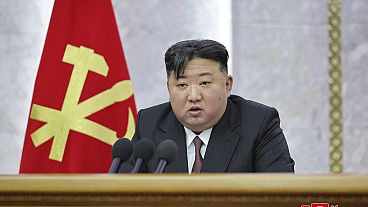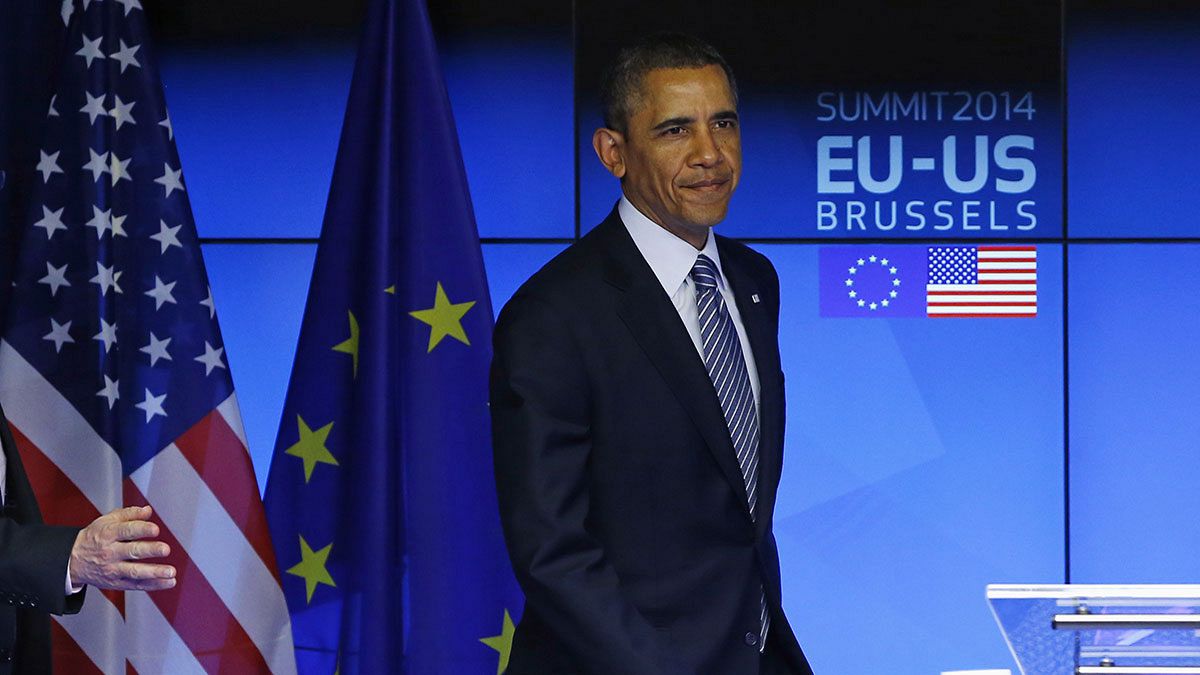The EU and US are in talks to create the world’s biggest free trade zone, claiming it will make both regions richer than ever.
But critics question the alleged economic benefits of the deal – called the Transatlantic Trade and Investment Partnership (TTIP) – and say the inclusion of investor-state settlement dispute clauses would undermine democracy.
Negotiations began in 2013. The 13th round of talks is set to begin in New York on April 25, 2016.
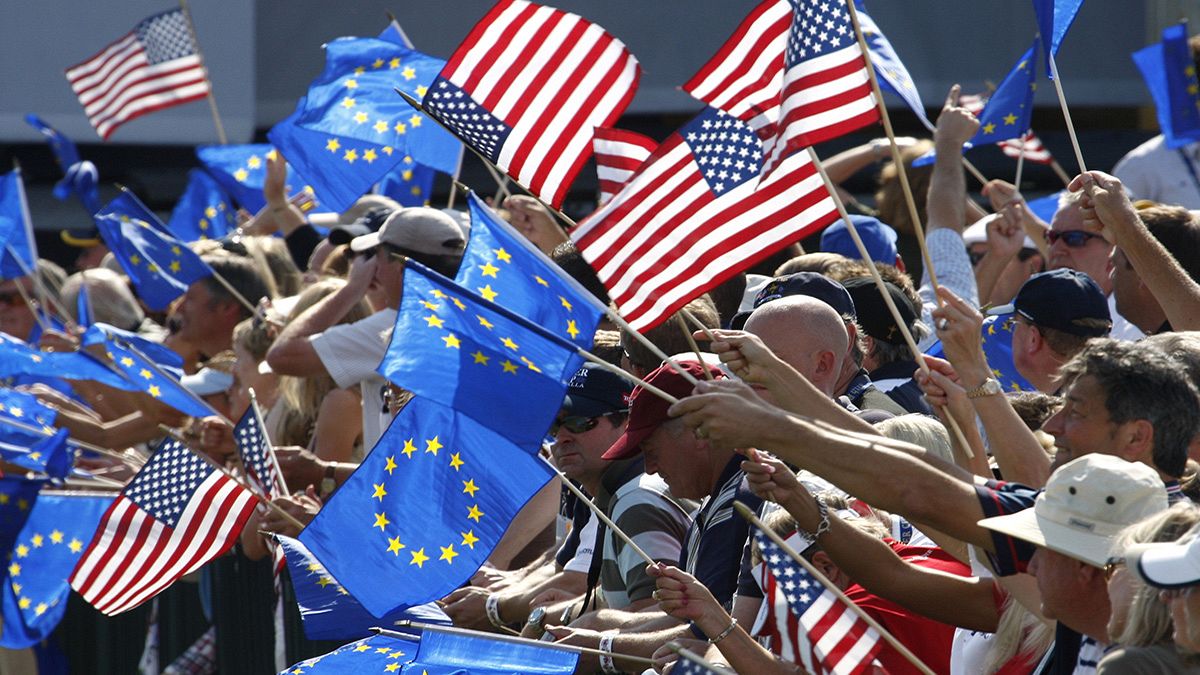
Why do we need an EU-US trade deal?
Talk of a trade deal between the EU and US has been around for decades but the catalyst for action was the economic crisis in 2008.
The powers-that-be decided, because the EU-US trade relationship was already the biggest in the world, it could be a relatively cheap way of boosting both economies.
The idea is that by removing trade barriers it will make it easier and simpler to buy and sell goods and services.
Trade barriers include differences in technical regulations or standards. The EU cites manufacturing a car as an example. At present, the vehicle could pass safety regulations in the EU, but would then have to go through another process for approval in the US.
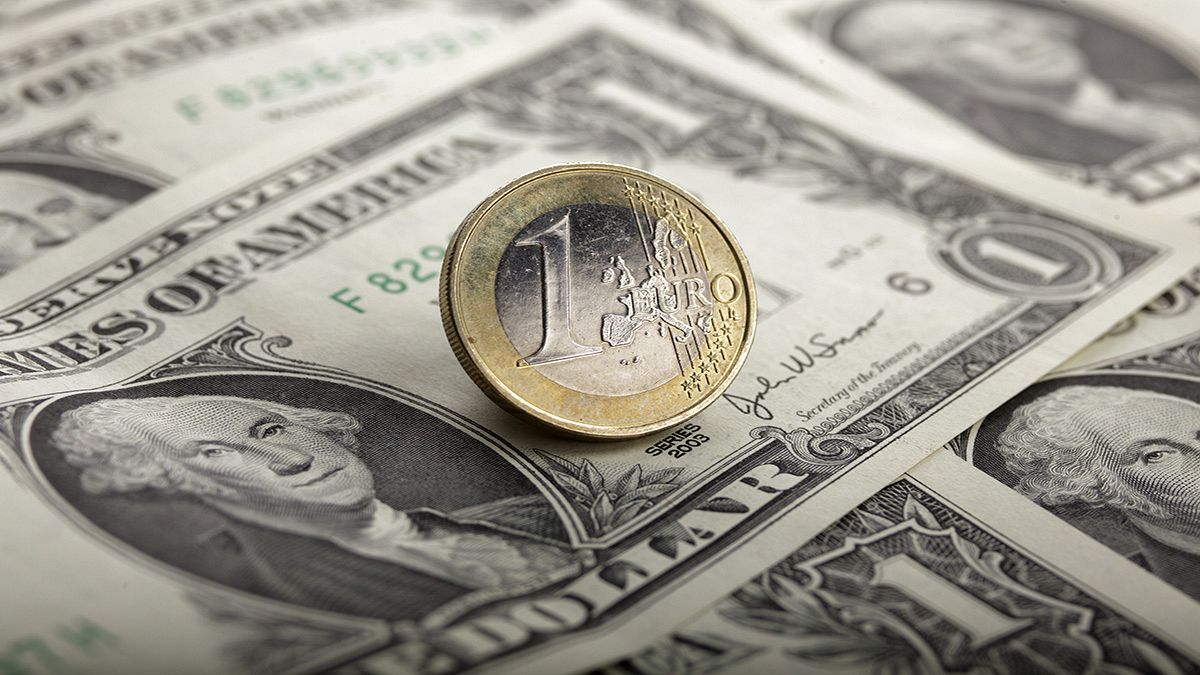
What are the benefits of TTIP?
The removal of tariffs and harmonising of regulatory frameworks could bring significant gains for EU and the US, according to a report by the UK Centre for Economic Policy Research (CEPR).
It claims the deal would boost the EU’s economy by 119 billion euros a year and the US’ by 95 billion euros.
The report also says the deal would create new jobs for high- and low-skilled workers.
But some have disputed the economic riches the trade deal will allegedly bring.
They include Germany’s economy minister Sigmar Gabriel who said in April 2015: “I don’t believe the wondrous calculations for economic growth from TTIP. All the estimates about its impact… give an impression of voodoo economics.”
Another is Dr Gabriel Siles-Brügge, from the University of Manchester, who says the figures claimed by CEPR are 'vastly overblown and deeply-flawed'.
He claims EU calculations assume that almost all sectors will be standardised, of which there is little chance, he adds.
A report published in 2013 by the Seattle to Brussels Network echoed concerns about how many jobs the deal would create.
It cited the NAFTA deal in 1993 – designed to boost investment and trade between the US, Canada and Mexico – claiming it resulted in the loss of nearly one million jobs.
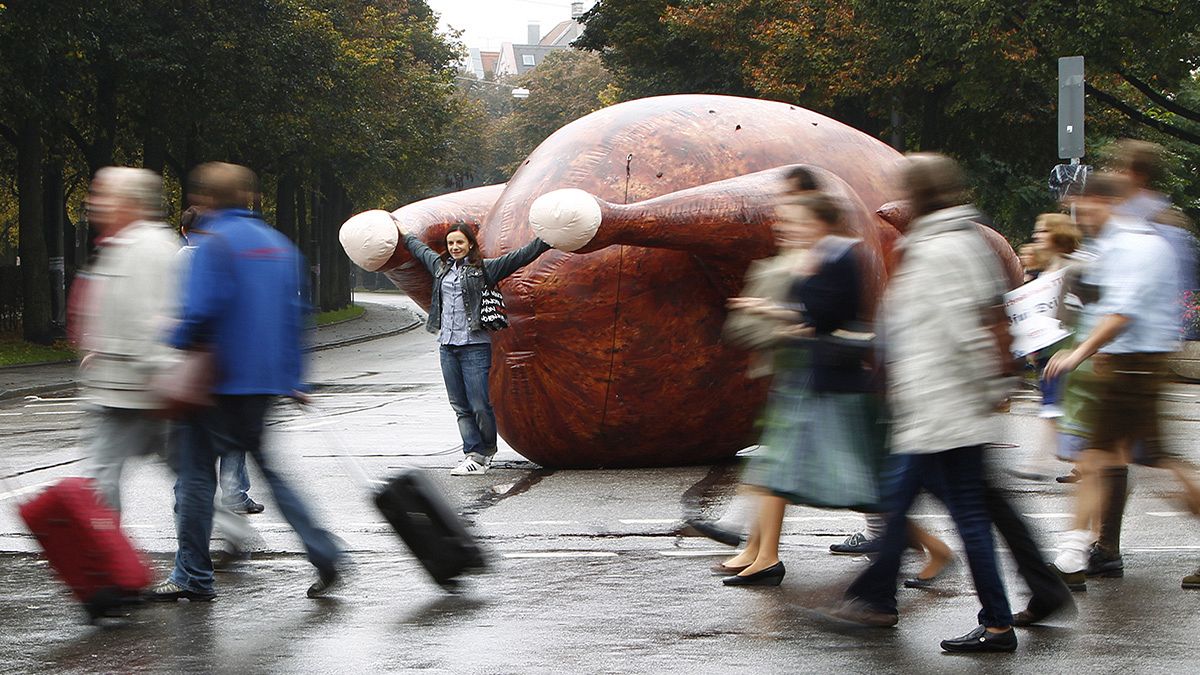
Where are the main differences of opinion?
One key area where the US and EU differ is genetically modified foods.
The production of GM foods sees DNA from another organism added to them to create a perceived advantage. For example, proponents of GM crops argue they can be made to be more resistant to pests, thereby increasing productivity.
The EU has some of the strictest GM regulations in the world (each case is subject to a science-based evaluation by the European Food Safety Authority before going before the European Commission) and has authorised just 52 to date.
The US, on the other hand, is the largest commercial grower of GM crops in the world. It wants the EU’s regulatory process to be harmonised.
The EC says the trade deal will not see laws changing on GMOs: “Basic laws, like those relating to GMOs or which are there to protect human life and health, animal health and welfare, or environment and consumer interests will not be part of the negotiations.”
Friends of the Earth in Europe said: “US negotiators at the talks have been clear that one of their main aims is to increase market access for US agri-business.
“The US negotiators argue that European regulations should take a similar approach to US regulations and be based purely on scientific assessments, often provided by the biotech companies themselves – rather than needing the political approval of the European Council, Commission and Parliament, which allows wider impacts such as ethics and the impacts on the environment and on society to be taken into account.”
There is also concern that US producers will be able to sell their meat in European markets, which is produced with different standards. For example chickens in the US are disinfected with chlorine, a practice banned in Europe.
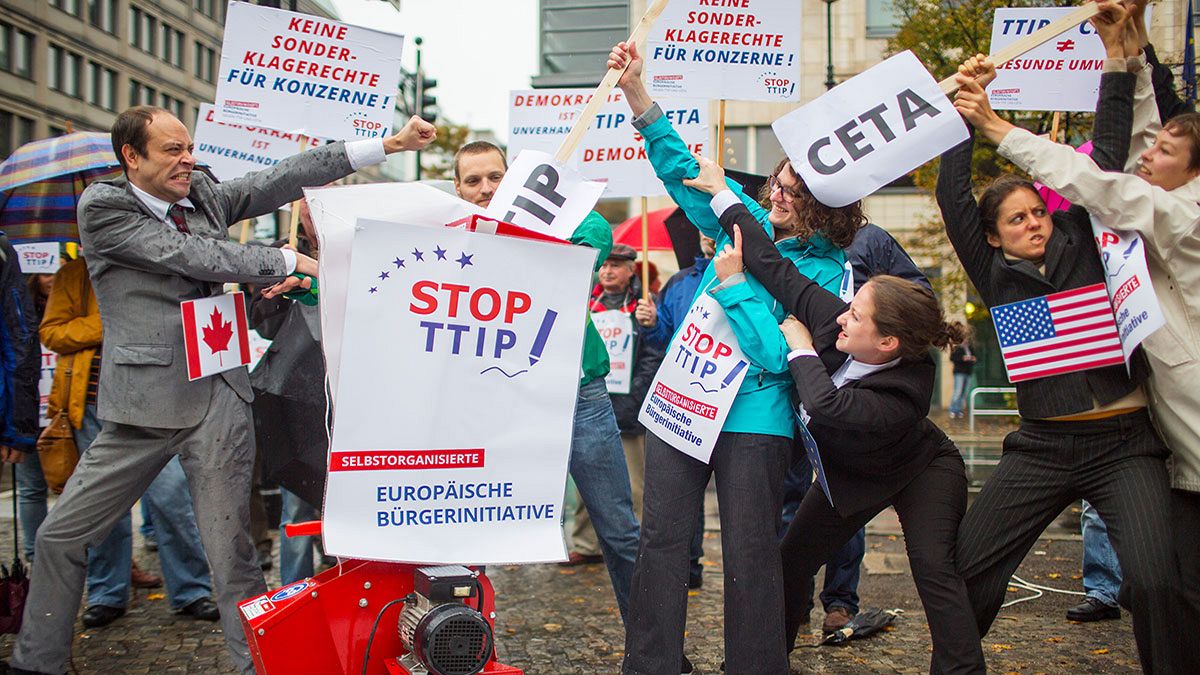
What are the other areas of concern?
The EC is negotiating the deal on behalf of the EU and its member states.
Critics had raised concerns around transparency, saying the deal was being thrashed out in private.
The criticism prompted the European Ombudsman to call for more TTIP documents to be published.
In January 2015 the EC published key negotiation documents for the first time.
Among causes cited for the economic crash of 2008 was financial regulation, or rather the lack of it.
In response the US and EU have both sought to strengthen regulation, in a bid to stop a similar catastrophe from happening again.
But TTIP critics say if financial services are included in the deal, it would "force concessions in regulatory standards at the expense of financial stability."
The US, however, has insisted financial services will not form part of the agreement.
There were also concerns about the impact of the deal on Europe’s film industry. However the European Commission insists the audio-visual sector, following objections from France, will not be part of the negotiations.

What are investor-state dispute settlements?
One of the most contentious areas of the proposed EU-US agreement is the possible presence of investor-state dispute settlement (ISDS) clauses.
Put simply they are a way for multinationals to claim compensation when changes in government policy harm their business.
For example Philip Morris is suing the government of Uruguay after it put health warnings on cigarette packets.
Proponents of the clauses argue they are a necessary mechanism to give investors the confidence to invest their money.
The EC had said backers need to know they will not be unfairly discriminated against, compared with domestic firms.
But critics say the clauses are on the increase and are a threat to democracy.
Corporate Europe Observatory (CEO) says there were 58 new investor-state claims made in 2012, the highest annual number ever.
There were 57 known claims in 2013, 46 percent of which were brought against countries in Europe, according to the United Nations Conference on Trade and Development (UNCTAD).
The overwhelming majority of cases were brought by investors from developed countries, UNCTAD adds, with 53 percent from the European Union and 22 percent from the United States.
Pia Eberhardt, a campaigner at CEO, who produced the video clip below, said: “Sometimes the mere threat of an ISD is enough to kill legislation just because the policy maker is afraid of being sued. That shows ISD are an enormous threat to our democracy.”
“ISD is a severe burden for public budgets, taking away money that should rather go on education or the funding of hospitals.”
The Office of the United States Trade Representative said in a statement: “There are a lot of myths out there suggesting that ISDS somehow limits our ability – or our partners’ ability – to regulate in the interest of financial stability, environmental protection, or public health. Some have even suggested that a company could sue a government just on the grounds that the company isn’t earning as much profit as it wants. These assertions are false.”
Karel De Gucht, the EU’s former trade commissioner, said he doubted TTIP would happen at all without them.
But Brussels’ positioned softened on them on 2015, following a report by German MEP Bernd Lange.
He recommended the disputes should be handled by a publically-appointed judge, rather than in a private tribunal.
MEPs backed the recommendation in July 2015.
EU trade commissioner Cecilia Malmström, speaking after the vote, said: “What today’s vote also signals is that the old system of investor-state dispute settlement should not and cannot be reproduced in TTIP – Parliament’s call today for a “new system” must be heard, and it will be.”
How does ISDS arbitration work?
Traditionally, the state and investor each choose an arbitrator, before they jointly select a third to serve as chair.
Proceedings have mostly taken place behind closed doors, but there are moves to improve the transparency of the process.
However some argue the process is not neutral enough and that the arbitration industry has a vested interest in putting the needs of investors first.
A CEO report says: “Yet rather than acting as fair and neutral intermediaries, it has become clear that the arbitration industry has a vested interest in perpetuating an investment regime that prioritises the rights of investors at the expense of democratically elected national governments and sovereign states. They have built a multimillion-dollar, self-serving industry, dominated by a
narrow exclusive elite of law firms and lawyers whose interconnectedness and multiple financial interests raise serious concerns about their commitment to deliver fair and independent judgements.
“As a result, the arbitration industry shares responsibility for an international investment regime that is neither fair, nor independent, but deeply flawed and business-biased.”
Another problem around transparency is the fact that no single set of rules govern the arbitration process.
For example 31 of the 57 new cases brought in 2013 were under rules of the International Centre for Settlement of Investment Disputes, according to UNCTAD. Twenty cases were heard under the regulations of the United Nations Commission on International Trade Law.
By the end of 2013, 274 cases had been concluded, with 43 percent finding in favour of the state, 31 percent the investor. The remainder were settled.




